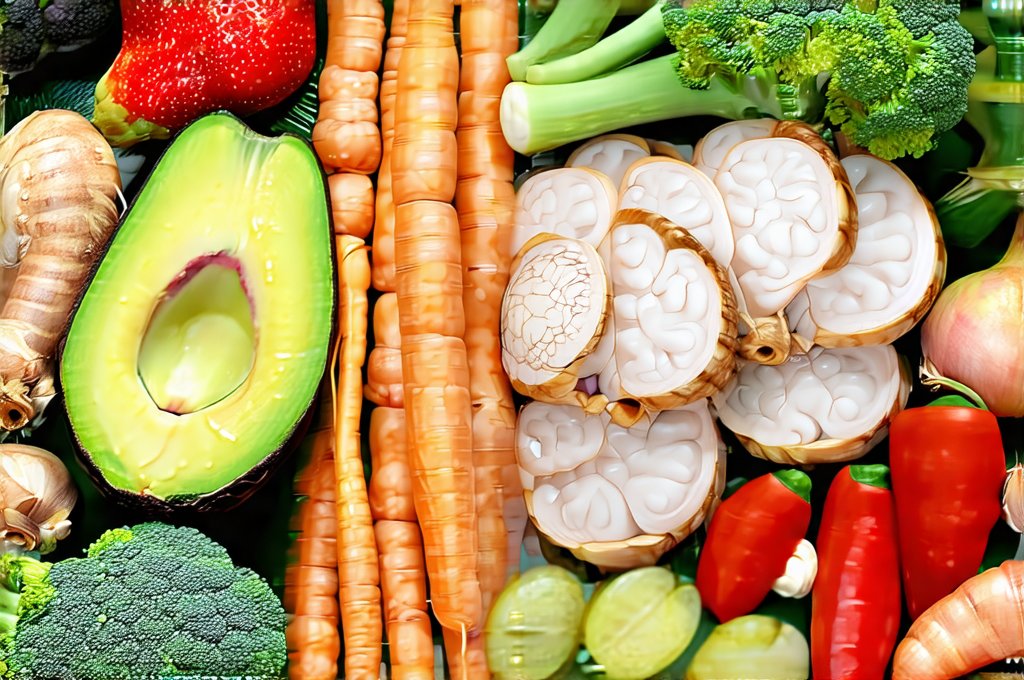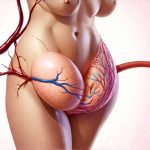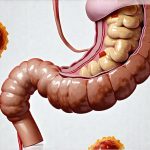Irritable Bowel Syndrome (IBS) and anxiety are frequently intertwined, creating a challenging cycle for those who experience both. What often begins as digestive discomfort can escalate into significant worry about when and where symptoms will strike, leading to increased stress and exacerbating the physical manifestations of IBS. This isn’t merely a case of “in your head;” it’s a complex interplay between the gut and the brain – what scientists call the gut-brain axis – that profoundly impacts overall well-being. Understanding this connection is crucial for developing effective coping strategies, and dietary choices play a surprisingly powerful role in calming both systems.
Many individuals living with IBS report experiencing heightened anxiety levels, often triggered by unpredictable bowel habits or fear of social embarrassment. This creates a feedback loop where stress worsens digestive symptoms, which then fuels further anxiety. The gut microbiome – the trillions of bacteria residing in our intestines – also plays a significant part. An imbalance in these microbial communities can influence brain function and mood, potentially contributing to feelings of anxiety and depression. Fortunately, specific foods can help nurture a healthier gut microbiome, reduce inflammation, and support a more balanced nervous system, offering relief for those navigating both IBS and anxiety.
The Gut-Brain Axis: A Two-Way Street
The gut-brain axis is essentially a bidirectional communication network linking the gastrointestinal tract and the brain. It involves neural pathways (like the vagus nerve), hormonal signals, immune responses, and the microbiome. This means that what happens in your gut can directly affect your brain, and vice versa. Stress and anxiety are known to disrupt the delicate balance of the gut microbiome, leading to increased intestinal permeability – often called “leaky gut” – which allows undigested food particles and toxins to enter the bloodstream, triggering inflammation. This chronic inflammation is implicated in both IBS symptoms and mental health conditions like anxiety.
Conversely, a healthy gut microbiome can positively influence brain function by producing neurotransmitters (like serotonin, often referred to as the “happy hormone”) that regulate mood and emotional well-being. A diet rich in fiber, prebiotics, and probiotics supports microbial diversity, strengthening this connection and promoting resilience against stress. It’s not about eliminating foods entirely, but rather focusing on nourishing your gut with nutrient-dense options.
The impact of dietary choices extends beyond just the microbiome. Certain foods can directly affect neurotransmitter production and nervous system regulation. For example, magnesium-rich foods help calm the nervous system, while tryptophan-containing foods are precursors to serotonin. Understanding these connections allows for a more targeted approach to managing both IBS and anxiety through mindful eating. Acid reflux can also play a role in this complex relationship.
Calming Foods: Building a Gut-Friendly Diet
When building a diet geared toward calming the gut-brain axis, prioritize whole, unprocessed foods that are gentle on digestion. Fiber is essential, but it’s important to choose low-FODMAP sources if you’re sensitive (more on FODMAPs later). Incorporating fermented foods provides beneficial probiotics that can help restore microbial balance. Foods rich in omega-3 fatty acids have anti-inflammatory properties and support brain health. Here are some examples:
- Fermented Foods: Yogurt (unsweetened, with live cultures), kefir, sauerkraut, kimchi, kombucha (check sugar content).
- Omega-3 Rich Foods: Fatty fish (salmon, mackerel, sardines), flaxseeds, chia seeds, walnuts.
- Magnesium-Rich Foods: Leafy green vegetables (spinach, kale), dark chocolate (70% cacao or higher), avocados, nuts and seeds.
- Tryptophan-Containing Foods: Turkey, chicken, eggs, nuts, seeds, bananas.
Hydration is also key – aim for at least eight glasses of water daily to support healthy digestion and nutrient absorption. Mindful eating practices – paying attention to your body’s hunger and fullness cues, chewing thoroughly, and savoring each bite – can further enhance the benefits of a gut-friendly diet by reducing stress and improving digestion.
Low-FODMAP Diet Basics
FODMAPs (Fermentable Oligosaccharides, Disaccharides, Monosaccharides And Polyols) are short-chain carbohydrates that are poorly absorbed in the small intestine. In susceptible individuals with IBS, these undigested sugars ferment in the colon, leading to gas, bloating, and discomfort. A low-FODMAP diet isn’t intended as a long-term solution but rather a temporary elimination diet to identify trigger foods. Identifying trigger foods is the first step towards dietary management.
- Elimination Phase: Remove high-FODMAP foods for 2-6 weeks. Common culprits include onions, garlic, apples, pears, wheat, dairy (lactose), and certain legumes.
- Reintroduction Phase: Gradually reintroduce FODMAPs one at a time, monitoring your symptoms to identify specific triggers. This phase is best guided by a registered dietitian specializing in IBS.
- Personalization Phase: Create a sustainable long-term diet that excludes only the foods that demonstrably cause you problems.
It’s vital to work with a healthcare professional during this process, as restricting too many foods can lead to nutrient deficiencies and an unhealthy relationship with food. The role of the gut is paramount in understanding these dietary needs.
The Role of Prebiotics & Probiotics
Prebiotics are essentially food for your gut bacteria – they’re types of fiber that humans cannot digest but microbes thrive on. Including prebiotic-rich foods promotes the growth of beneficial bacteria, contributing to a healthier microbiome. Good sources include asparagus, bananas (in moderation if low-FODMAP), oats, garlic (use cautiously with FODMAP sensitivity), and leeks.
Probiotics are live microorganisms that, when consumed in adequate amounts, confer health benefits on the host. While fermented foods offer natural probiotics, supplements can also be helpful. However, it’s important to choose a high-quality probiotic supplement with strains specifically researched for IBS symptoms. Consider consulting with your doctor or registered dietitian to determine which probiotic strain is best suited for your individual needs.
Managing Stress & Dietary Synergy
Diet alone isn’t enough; managing stress is paramount in breaking the cycle of IBS and anxiety. Incorporate stress-reducing practices into your daily routine, such as:
- Mindfulness Meditation: Helps calm the nervous system and reduce reactivity to stressors.
- Regular Exercise: Releases endorphins that have mood-boosting effects.
- Deep Breathing Exercises: Activates the parasympathetic nervous system (the “rest and digest” response).
- Yoga or Tai Chi: Combines physical movement with mindfulness.
Combining these practices with a gut-friendly diet amplifies their benefits, creating a synergistic effect that supports both physical and mental well-being. Remember, it’s not about perfection; small, sustainable changes are more effective in the long run than drastic overhauls. Focus on adding nourishing foods to your diet while gently eliminating potential triggers, and prioritize stress management techniques to cultivate a calmer gut and a more peaceful mind. Seasonal indigestion can also impact these routines, so be mindful of changes in your diet and lifestyle. Additionally, consider dairy and acidic food combinations and their effect on your digestive system.


















